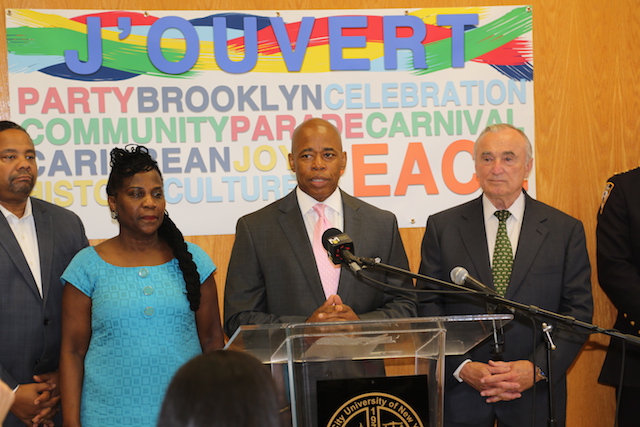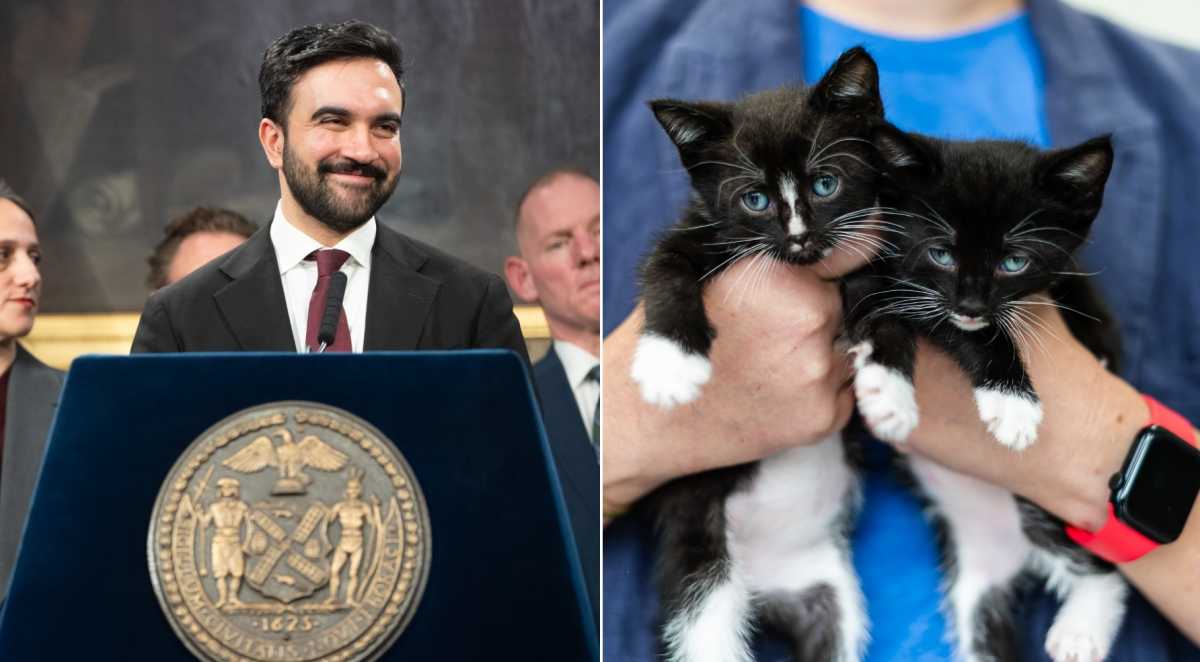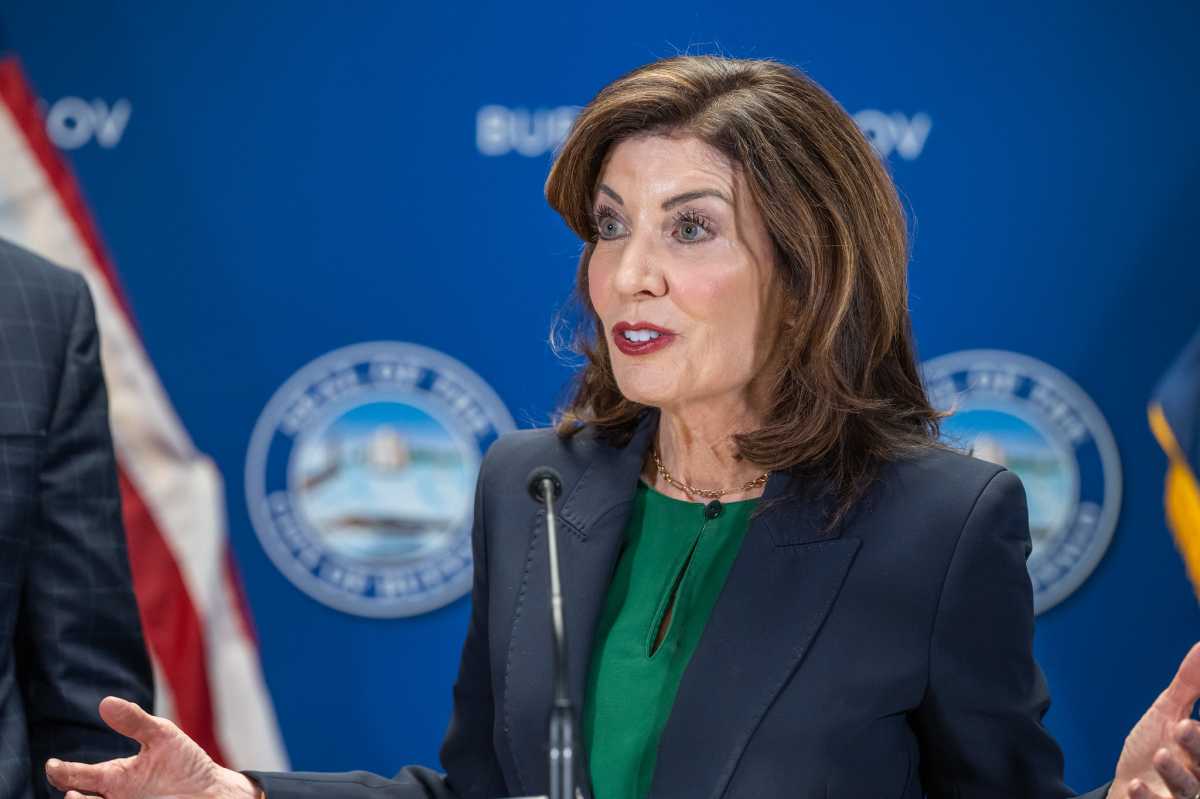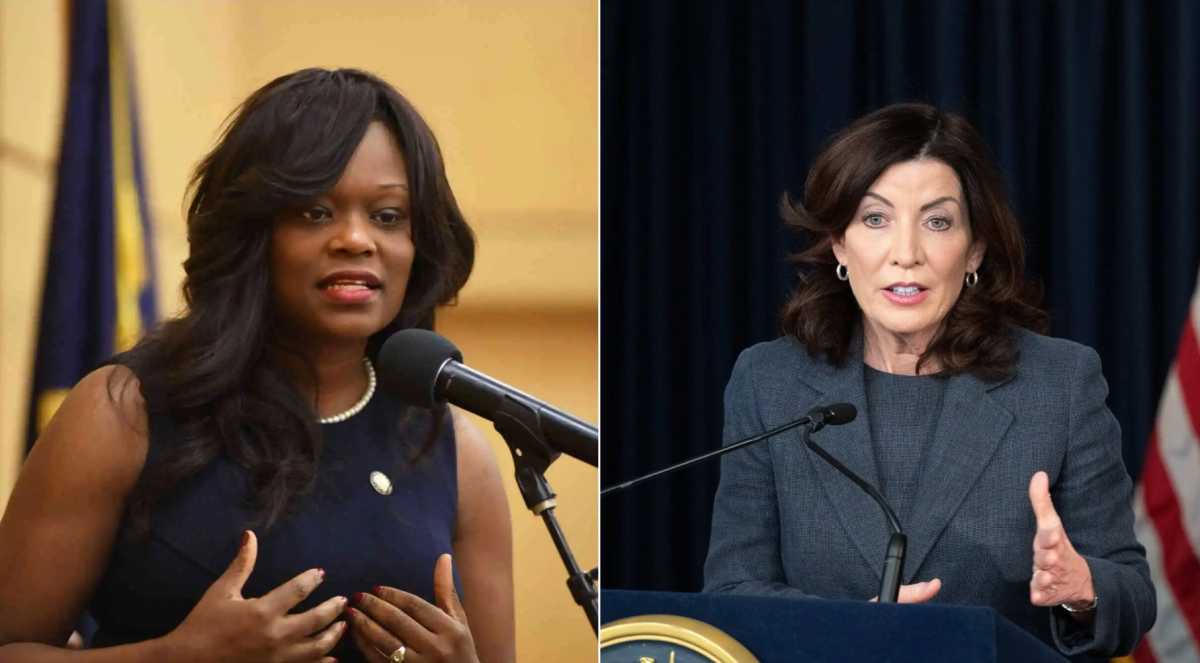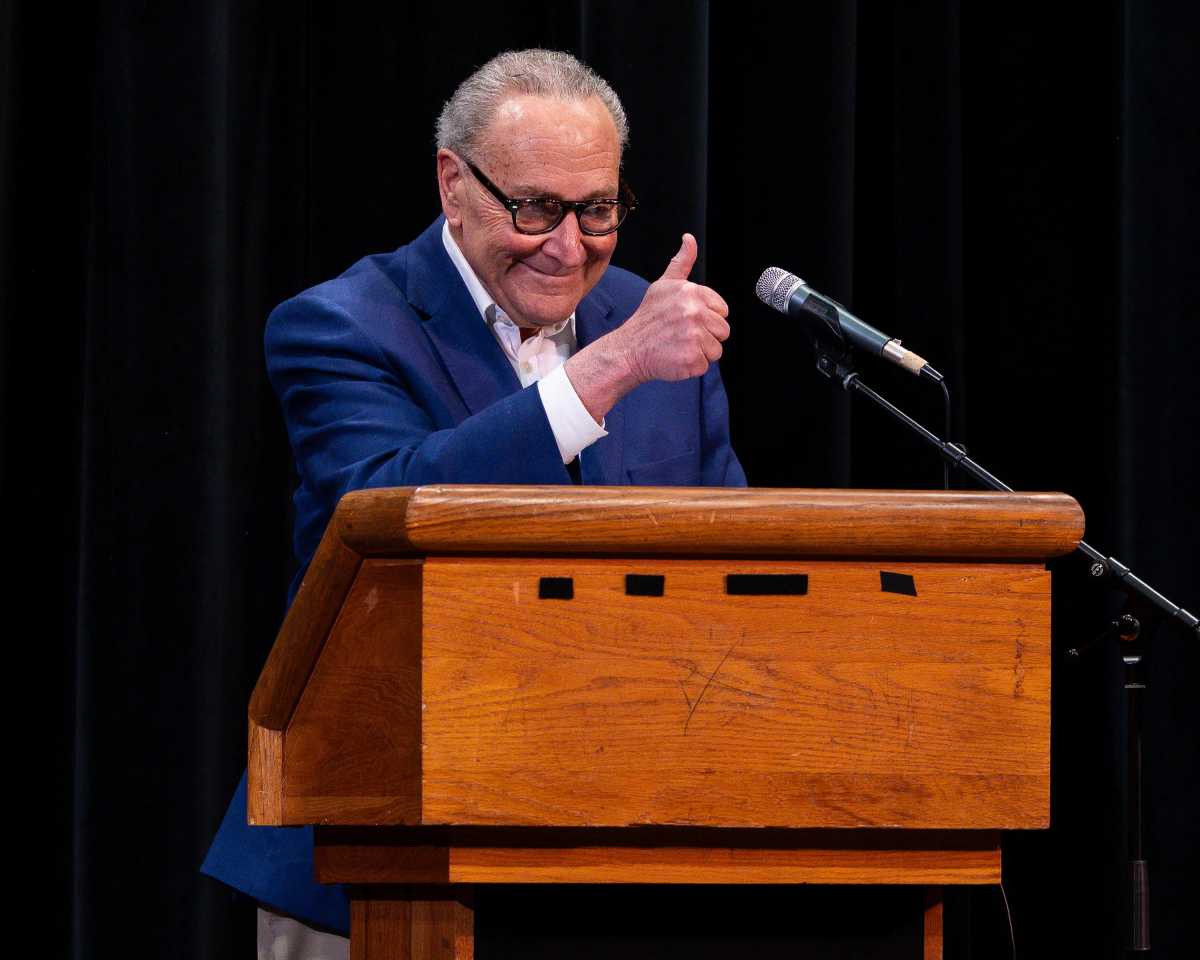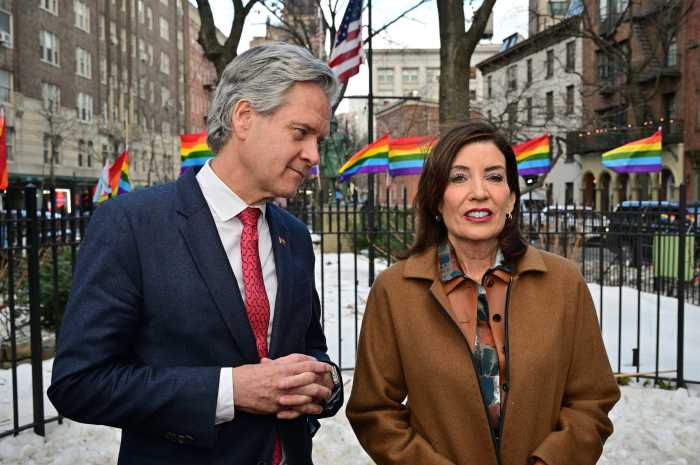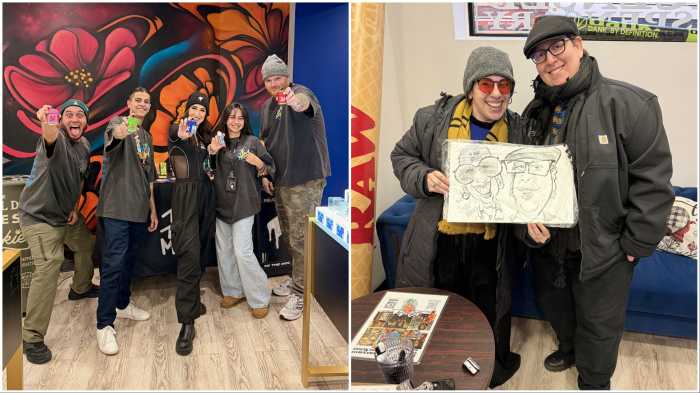This year’s J’Ouvert, the name for the night before and leading into Brooklyn’s annual West Indian Day Parade, will carry over much of the same security measures implemented in 2017 in an effort to change the bloody status quo characterizing J’Ouvert and the parade in past years, according to an NYPD official.
New York Police Department Detective Roxanne Joseph, during a community roundtable at Brooklyn Borough Hall Thursday, said those measures would include police-screening checkpoints at parade entrances, “violence interrupters” stationed throughout the parade, and a moved start time from 2 a.m. to 6 a.m.
“We’ve been working a lot to make sure that everyone is coming out, they’re going to have a good time, and they’re safe,” Joseph said.
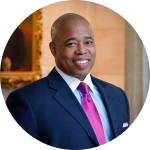
The security measures were first implemented last year after a Cuomo administration lawyer was shot and killed at the parade in 2015, and two more people were killed in 2016. Borough President Eric Adams dubbed 2017 a success at the meeting Thursday, noting that no one was killed in the parade last year.
Although specific details about police manpower for this year’s parade have yet to be released, Joseph said the number of security checkpoints would be increased due to long lines getting into the parade last year. Joseph said the best way to get in quickly, though, is for people carry as little with them as possible to the parade.
“If they’re coming and they’re not having stuff to check in, it makes the process a little bit easier,” Joseph said.
Still, Joseph said, “We’re going to do everything in our power to make sure everyone is safe. We don’t want anyone to get hurt. So it’s going to take time but everyone’s going to get in.”
Adams said the security preparations for the parade have been in progress for several weeks. “We are not waiting for the day of J’Ouvert to come up with an action plan,” Adams said.
Part of those preparations include the “NYC Cease-fire” program, according to Pastor Gilford Monrose, director of faith-based and clergy initiatives in the borough president’s office. As part of the program, Pastor Monrose said he and members of the NYPD go to the houses of known shooters and people at risk of being shot to let them know there will be “zero tolerance” for crime during the parade.
Pastor Monrose said they will also bring those people together in a meeting before the parade to offer them job training and GED assistance. “It’s the police and community saying we can help you,” Monrose said.
Noting that J’Ouvert is a time for Caribbeans to celebrate their heritage, Joseph had a message for those intending to take part in violence: “It’s a sensitive time for our people, and we don’t want you to come out,” Joseph said.
Adams also noted that he hoped the parade would be characterized by its positive impact on Brooklyn, rather than past violence. “When you start to look at the amount of revenue and tax dollars that is infused into the economy, we think it is important that this parade is displayed as an economic boost and not as a place that brings about violence,” Adams said.
“The parade does not bring about violence. Small numbers of people have acted violent on that day and that should be the message that is clear,” Adams said.


